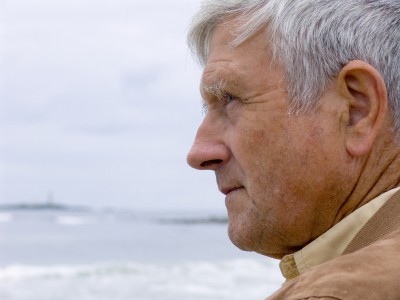Men who have prostatitis (inflammation of the prostate) who are also experiencing erectile dysfunction or other sexual difficulties are not imagining things; the two are related. Although there is not a lot of research on the topic, a few previous studies have examined the relationship between prostatitis and sexual function. Now, a new analysis has taken it a step further.
What do we know about prostatitis and sexual function?
In prior research on the subject, such as that from investigators at Memorial Sloan Kettering Cancer Center, it’s been noted that “most of the data linking the two [prostatitis and sexual function] suggest that CP/CPPS [chronic pain/chronic pelvic pain syndrome] impairs the overall quality of life and it is this that contributes to or causes erectile dysfunction.” While this may be true, the authors of a recent study published in International Brazilian Journal of Urology evaluated the effect of histological prostatitis (prostatitis based on prostate biopsy findings) on lower urinary tract symptoms (LUTS) and sexual function.
More specifically, the investigators compared the effect of histological prostatitis on LUTS and sexual function in men with the prostate condition as well as those with symptoms but without histological prostatitis. Here’s what they discovered:
- Mean international prostate symptom scores (IPSS) in men with prostatitis were similar to those in men without prostatitis. This means that LUTS associated with prostatitis were similar among men with and without the disease.
- Mean international index of erectile function-5 (IIEF5) scores among men with prostatitis were significantly lower than those in men without prostatitis.
From these findings, the authors concluded that the presence of histological prostatitis “notably affected sexual function of patients and may serve as a major risk factor for sexual dysfunction while having little effect on lower urinary tract symptoms.” Men who had been diagnosed with histological prostatitis experienced more serious erectile dysfunction than their peers without prostatitis.
Sexual function can be impacted by prostatitis even in men who are not experiencing significant lower urinary tract symptoms. Men and their healthcare providers should be aware of this possibility and make treatment plans based on this knowledge.
What men with prostatitis can do for better sexual health
Men have a variety of treatment options for dealing with inflammation of the prostate gland. Certainly a number of pharmaceuticals are available, including nonsteroidal anti-inflammatories, antimicrobial therapy, 5a-reductase inhibitors, and alpha-blockers, but their use can be associated with some significant side effects. Natural lifestyle and alternative methods are suggested as the first line of defense to manage prostatitis and thus help with sexual function issues. Men are encouraged to consider one or more of these methods and to discuss them with a knowledgeable health professional to ensure they choose the ones that fit their lifestyle and needs.
- Acupuncture. Several studies have shown that acupuncture can be effective for symptom relief in men with CP/CPPS. Full body, ear, and electroacupuncture all have shown some success.
- Biofeedback. Use of biofeedback for CP/CPPS is based on the idea that men with this most common form of prostatitis have pain associated with pelvic floor muscle tension. Biofeedback can be used to manage this pain.
- Diet. A new study published in Prostate Cancer and Prostatic Diseases noted that an imbalanced diet, insufficient water intake, and consumption of caffeinated beverages are risk factors for or are associated with more severe pain in CP/CPPS. Men are encouraged to try a wheat-free diet (which has been shown anecdotally to help with symptoms), focus on fresh fruits and vegetables, include healthy fats in their diet, choose plant protein over animal protein, and drink green tea to promote a healthy prostate and help ward off prostatitis.
- Prostatic massage. This is a therapeutic method men can learn to do themselves or have a partner or medical professional do for them. Use of prostatic massage can help release accumulated fluids (and thus relieve pressure on the urethra), improve blood flow, and help the prostate return to normal size.
- Reflexology. This hands-on therapy is one men can easily learn to do on their own or have a partner do it for them. Reflexology for prostatitis is best for helping with pain relief.
- Stress management. Stress is both a risk factor and a factor that exacerbates prostatitis symptoms. Men are encouraged to make stress management techniques a part of their daily routine, whether it be deep breathing, tai chi, yoga, progressive relaxation, guided visualization, meditation, aerobic exercise, or other ways of relaxing.
- Supplements: Among the natural supplements scientifically shown to be beneficial for better prostate health are beta-sitosterol, cranberry, curcumin, green tea extract, indole3-carbinol (DIM),Pygeum africanum, quercetin, rye grass pollen, saw palmetto, stinging nettle root, vitamin D, and zinc.
- Trigger point release therapy. This is a hands-on therapy that involves applying pressure to specific points in the pelvic floor and related muscles. The trigger points are accessed both internally and externally, usually by a trained therapist.
